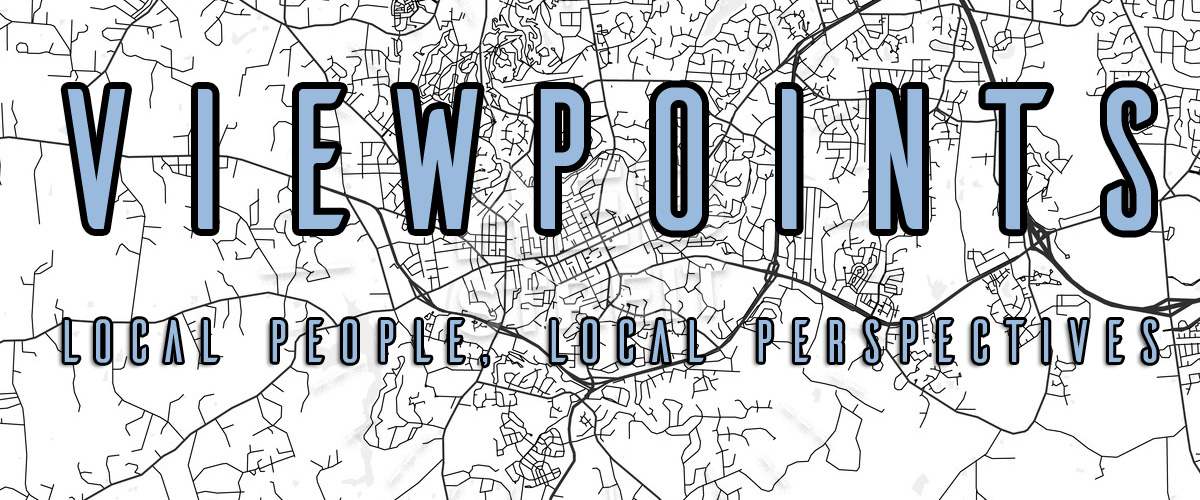
“Viewpoints” is a place on Chapelboro where local people are encouraged to share their unique perspectives on issues affecting our community. If you’d like to contribute a column on an issue you’re concerned about, interesting happenings around town, reflections on local life — or anything else — send a submission to viewpoints@wchl.com
Election Day May Be Over, but My Call to Defund the Police Is Not
A perspective from Frantasia Hill
On November 2, Minneapolis residents voted on Yes 4 Minneapolis, a proposal to replace the city’s Police Department with a Department of Public Safety which would use a public health approach to public safety. Under Yes 4 Minneapolis, the police officer role would not have been abandoned, but altered, mainly by way of demilitarization; the amendment called for a reallocation of funds from the police department to other agencies. As many expected, it was rejected. Many opponents of the proposal argued that the amendment was poorly planned and failed to “take into account residents’ concerns about crime.” If the Defund the Police movement ultimately failed politically, is it time to give up on this dream?
No. It was Defund the Police yesterday; it is Defund the Police today; and it will be Defund the Police tomorrow. It is Defund the Police not because all cops are bad cops, but because the system is broken, and individual cops have proven to be ill-equipped to de-escalate situations, specifically those involving people of color and people living with mental illnesses. Defund the Police is not a movement that seeks to benefit racial and ethnic minorities, its intent is to protect everyone, especially our communities’ most vulnerable.
People with untreated mental illness are 16 times as likely to be killed by a police officer when stopped or questioned. Although less than one in 50 United States adults live with a severe mental illness, this group makes up at least 25% of all fatal police shootings.
This June, an officer-involved shooting in Mooresville, NC that occurred in August 2020 was ruled justified by a Randolph District Attorney. Christopher Craven died on the scene after being shot at least 15 times by police who were responding to a domestic violence call and were told that Craven was suicidal. According to the police, Craven did not obey when asked to show his hands, but instead drew a gun. Craven’s family, however, disputes this report, stating, “This was murder. It was not justified…He complied with everything they told him to do and they shot him.”
To some, like the District Attorney, this response may seem justified. It is not. Regardless of the crime, firing 15+ bullets into a suspect who is clearly in mental distress is unnecessary and egregious. When Craven allegedly went to draw his gun, the police should have deescalated the situation without excessive force. Instead of receiving the help he was obviously in need of, Craven was shot 15+ times.
Unfortunately, this happens all too often, and it is caused by the limited ability of law enforcement to handle mental health crises—a shortcoming that is not unexpected given law enforcement’s obligation to handle crime, not mental illness. The average police officer encounters “188 critical incidents that overwhelm their normal coping skills,” resulting in a large amount of pressure and trauma. Pressure, stress, and lack of training are associated with officers’ inability to de-escalate situations, ultimately leading the officers to unintentionally escalate already intense situations.
Many skeptics of Defund the Police—public officials included—have called for a reform in police training, including more comprehensive crisis intervention training. While enticing the surface, a deeper dive reveals a bleak reality. Currently, 21 states, including North Carolina—do not mandate de-escalation training for police, leaving it to local agencies to independently decide their training priorities. Many larger, better funded agencies in North Carolina do provide required crisis intervention training. Smaller agencies, on the other hand, have a tough time doing so due to funding constraints and their inability to spare officers, even if for a day. Additionally, many critics of increased crisis intervention training argue that there are not enough evidence-based outcomes measurements for this approach. There is also the worry that crisis intervention teams and training will shift cost burdens from police budgets to community mental health budgets which are less politically favored and thus, harder to implement. Fiscally conservative critics argue that these programs are expensive and point out that they lead to, at best, moderate savings overall.
So, the question is, if politicians are not willing to mandate and fund crisis intervention training then why are politicians calling for such a reform? “Reform,” the buzzword of the past few years, is synonymous with “rename.” Reform is performative. People are tired of seeing things renamed, they want to see real change. Real change starts with defunding the police, not promoting performative and unpopular “reform” measures. Contact your representatives and let them know that it is time to stop reforming and time to start redistributing funds.

“Viewpoints” is a place on Chapelboro where local people are encouraged to share their unique perspectives on issues affecting our community. If you’d like to contribute a column on an issue you’re concerned about, interesting happenings around town, reflections on local life — or anything else — send a submission to viewpoints@wchl.com
Chapelboro.com does not charge subscription fees. You can support local journalism and our mission to serve the community. Contribute today – every single dollar matters.

